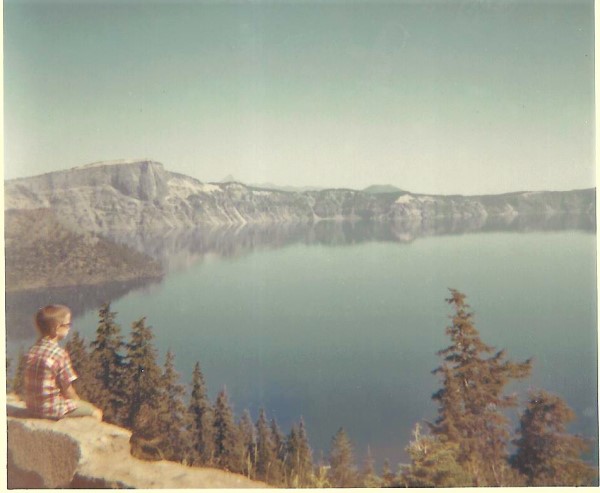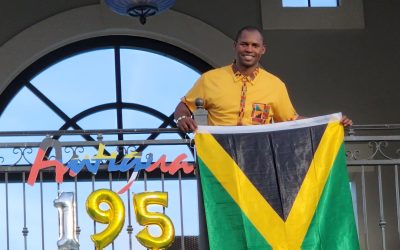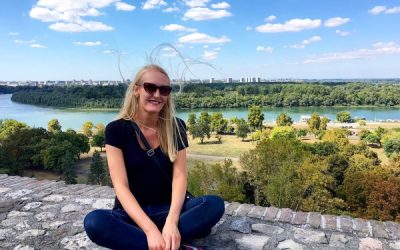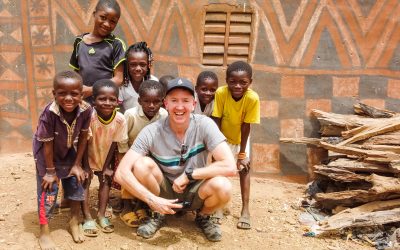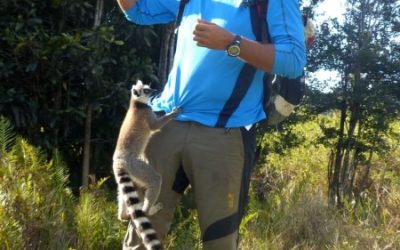Steve Newcomer is one of the long-standing members of our NomadMania Community and joined the UN Masters List back in 2008 with Comoros as his last UN country. He has been a member of our Executive Committee and is one of the highest ranked in terms of our Series and the places he has actually visited. What sets him apart is that there are no online media traces of him – no social media posts and no newspaper articles celebrating his travels. We are therefore correcting this absence by welcoming him today!
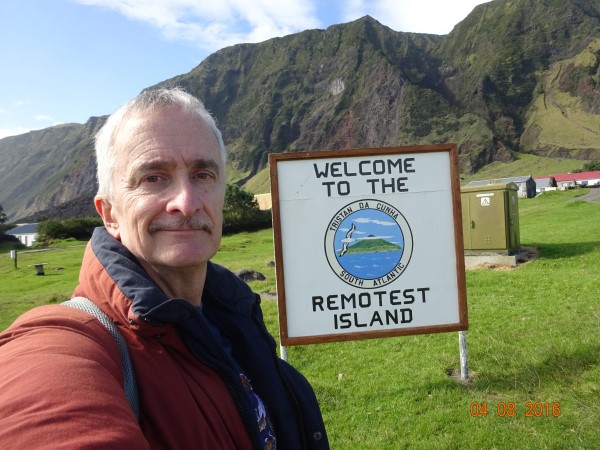
Steve, tell us something about your early years and how your love for travel developed.
I think there’s a genetic component to my wanderlust. My father was a surveyor, part of a team of mountain climbers who measured the height of mountains throughout the western U.S. in the 1940’s. As a kid growing up on the Great Plains, my father’s love of the outdoors rubbed off on me. I would day dream about what lies beyond Pikes Peak (which I could see as I walked to school in the morning) or what it would be like to live in African villages depicted in the National Geographic magazines. I ordered the “bags of stamps” advertised in travel magazines, hoping to eventually collect a stamp from every country on earth. Then I branched out to collecting maps and timetables and even opened a “travel agency” in my bedroom, complete with a “destination of the month” travel photo (taken from a calendar) taped to my bedroom door. In high school I did a class report on the United Nations, thinking how interesting it would be to visit all of those countries, never imagining that one day I would actually do it! Many summers my parents would take us on week-long road trips around the country to visit national parks as well as friends and family. When opportunities for coursework abroad came up in college I scraped together the necessary money to take advantage of them and soon my passion for travel became evident. Travel was, and still is, the best education I can imagine!
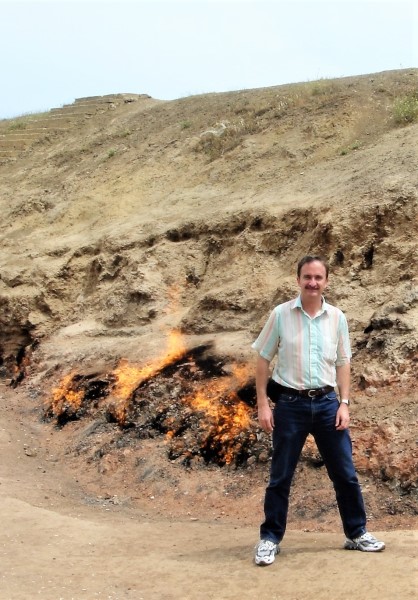
You were one of the earlier travellers to complete 193, reaching the goal in in 2008. What was your travel style and what motivated you to reach 193?
It wasn’t until 2003 that I even thought about trying to visit all the U.N. countries. In that year I met Herb Goebels (a prolific tour leader and NomadMania member) on a trip he was leading to the Horn of Africa. During our unexpected sojourn in Mogadishu’s Sahafi Hotel he told me about the Travelers Century Club and how many people “collect countries” as some people collect stamps. I was intrigued by the idea, but I was disappointed when he told me that some travelers were just “stepping across borders” or “flying in and out of airports” to count a new country — that made no sense to me. (All the travel clubs put heavy emphasis on crossing federal and provincial/state borders which isn’t appealing to me, but at least NomadMania has the added benefit of acknowledging one’s experiences and the things one has seen and done which complement the “border crossings”.) Having survived a week in one of the most difficult and dangerous countries to visit, I figured it just might be possible to visit the remaining ones. Herb gave me a list and provided me with tips and his expertise on how to visit them.
Most of my travels have been solo. Finding a simpatico travel partner (especially for a gay guy like me) who was interested in going to way-off-the-beaten-track places was next to impossible, especially in my early years of travel. But I’m not uneasy being alone. (An attribute that has come in handy during the COVID pandemic lockdowns.) There have been numerous occasions when solo travel has been impractical if not impossible. I’ve happily joined group tours and cruises to reach places like the Antarctic, Afghanistan, Libya and remote islands of the Atlantic and Pacific. And I have traveled with elderly friends on their trips when they wanted companionship. I have backpacked (especially in my younger years), done the Eurail Pass rush through Europe as a 20-something college kid, and taken a couple of ritsy cruises which I had no business being on other than that they went places I really, really wanted to visit! No matter the type of journey, I have never traveled with anything more than a shoulder bag. If it doesn’t fit under the airline seat, it doesn’t go! The porters on cruise ships have expressed great concern that my luggage was misplaced or lost when there was nothing for them to deliver or pick up from my cabin. I had to assure them my book bag was all I had! I simply don’t like being burdened with “things” and am not comfortable with formal affairs.
As I’ve aged and had a few health scares, I’ve come to appreciate the advantage of travel with others. So I have a few times paid the fare to have someone accompany me. This has given me an assurance that if I do need assistance there is someone who can help, and it has provided an opportunity for the other person to experience travel to places he might never see in his lifetime.
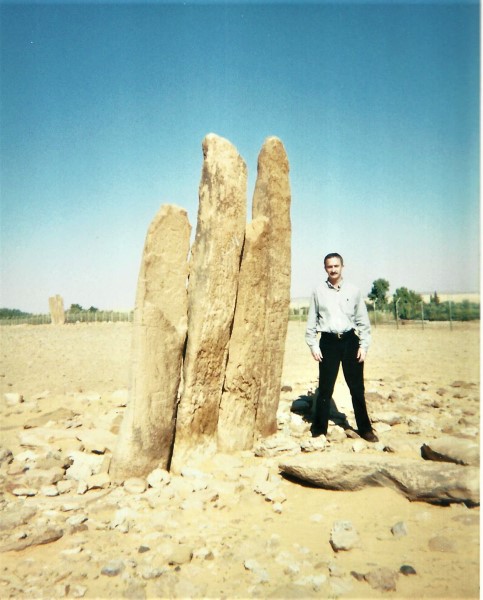
You are one of the few on the UN Masterlist without any online media exposure concerning your travels. Why is that?
Hey, I’ve got email, does that count? The world is full of travel “experts”, bloggers, vloggers and tweeters. I don’t feel any need to join the fray. I’m a person who relishes privacy and have learned that sometimes it’s better to keep my thoughts to myself rather than speak prematurely about something I likely know less about than others. Speak less. Listen more. I’m content with silence.
I realize I’m out of touch with technology. I have no cell phone, no smart phone and no car. When my television broke down a few years ago I waited over a year to replace it. I’ve managed to travel to every country on earth without a phone and it has been a blessing in some ways. Being “disconnected” from social media has required me to do more social interaction when I travel. I can’t turn to an app or to Google or anyone else in cyberspace to direct me or get me out of a jam. I can only turn to locals for assistance. And rather than spend every waking moment blogging about my activities I have more time to enjoy the place where I find myself. It’s really more fun this way.
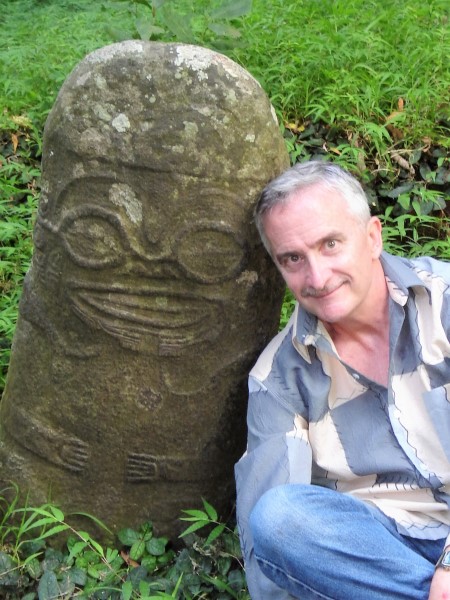
What has surprised you most during your travels? Do you feel travelling changed you?
The ever-present smart phones, even in remote regions of the world. It’s progress, I suppose. But it’s also disappointing, especially to some of us who have memories of decades past when China’s streets were crowded by bicycles, when one encountered near naked feather-adorned native men in bus stations in Brazil; when airport security was nearly non-existent; when passports were optional; and when sending and receiving post cards was mandatory! The world has become so small. It’s becoming more homogeneous. McDonalds, and KFC are everywhere. Visas on arrival are common. But regardless of these changes, the wanderlust continues until we die, I suppose. As long as I am willing to step out of my comfort zone and open my mind to new experiences, I have the opportunity to mature, even as I enter geezerhood.
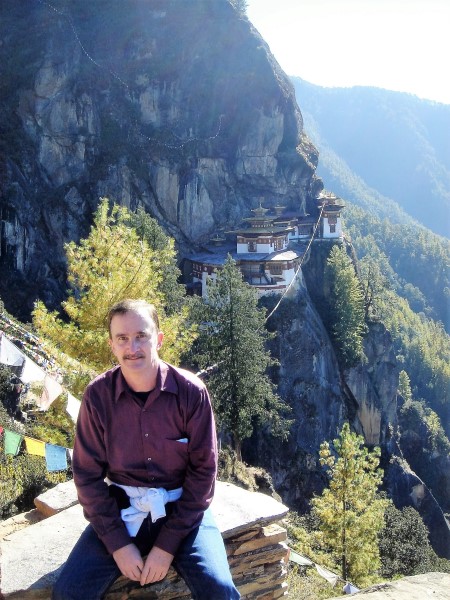
Give us a couple of travel stories/experiences that have remained with you.
I’m a fan of transcontinental overland travel. My most memorable journeys are those when I find myself with a group of strangers speaking languages I don’t understand, traveling down roads which are unfamiliar to me and seeing sights which awaken my curiosity.
In 1986 I circumnavigated Australia by public bus with many of the legs of the journey driven at night. I was disturbed by the number of kangaroos the bus hit and killed as we sped through the darkness and crashed head-on to the roos whose eyes were transfixed on the headlights of our oncoming bus! I would call out to the driver to be cautious, but he thought I was nuts! The kangaroos, he said, were “pests!”
After retiring a few years ago I traveled from Singapore to London by train and bus, a journey of a few comfortable weeks — something so much easier than it would’ve been a few decades earlier.
And my journey from Prudhoe Bay, Alaska to Ushuaia, Argentina (with a boat ride between Colon, Panama and Cartagena, Colombia) which I accomplished in sections over a number of years has produced some lasting memories. In the mid-1980’s there was a 540 mile mud track through the rain forest from Manaus to Porto Velho, Brazil (called BR-319 highway) and there was a bus company that prided itself on taking passengers between those two cities in about 18 hours. I naively believed them. We left muggy Manaus and soon after crossing the Amazon (on a ferry), the rains began to fall and the bus slipped and swerved its way down the jungle path, sliding off the road and into ditch after ditch after ditch. Each time the driver demanded that all the “men” get off the bus and push it back on the road. Three days later, hungry, covered in mosquito bites and caked head to toe in mud, we arrived in Porto Velho! I sought out the nearest hotel to clean up and rest, only to be told to remove my clothes before entering the premises! (The “highway” was wisely declared impassible soon thereafter.) Now, 40 years later, it’s actually a pleasant memory!
But the experiences which I would never tire of repeating are encounters with wildlife. I’ve returned to Rwanda and Uganda several times to see the mountain gorillas and to Antarctica to sit among the curious penguins. There’s nothing quite like being in the presence of these fellow earth-dwellers.
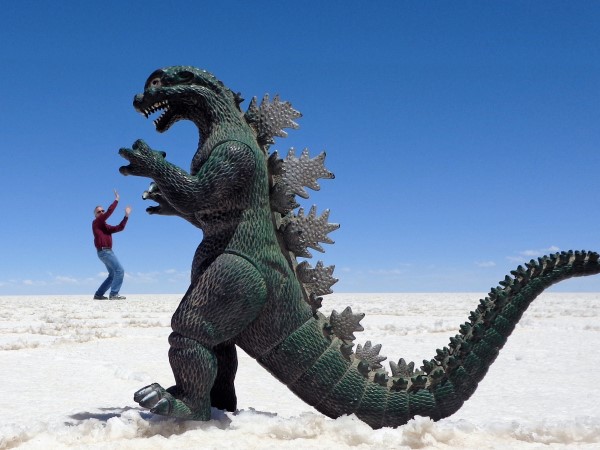
You are one of the leading travellers in most of the NomadMania series and number one in our World of Nature Series. What fascinates you about nature? What are some of the hidden gems in nature you could recommend that may not be all that well known?
My father instilled in me his love of the natural world. And my mother once said that her ideal vacation would be to go “find a rock to sit on” somewhere by a stream to spend a week in solitude: a time to read a book, or collect her thoughts or gaze into the star-filled sky to remind herself of one’s place in the universe. We can get so caught up in our careers or in our quests for “success” or in our family feuds or our passions that we tend to lose sight of the bigger picture — of our insignificance in the endless expanse of space. So nature is, for me, a reminder of my place in the universe. It refreshes my soul and reinvigorates my spirit and keeps me grounded.
There’s nothing quite like an au-naturel stroll on a deserted beach, standing beneath a rushing waterfall, hiking a solitary trail in the wilderness or encountering a curious prairie dog while on a picnic on the plains. One needn’t seek out distant national parks to commune with nature — they’re usually too crowded anyway. But there are places near each of us which should remain our secret escapes.
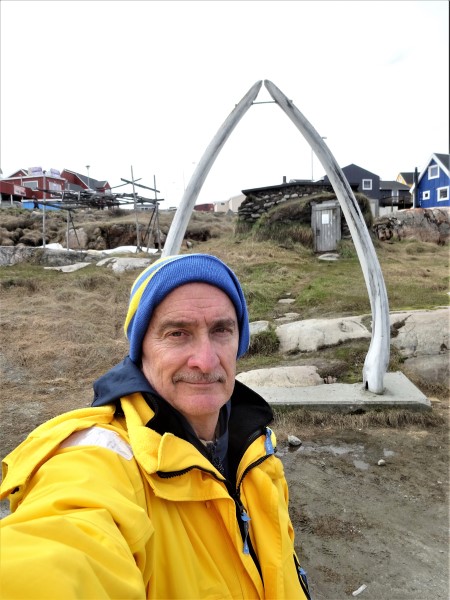
You are also active in environment and refugee issues. Tell us something about this and how it links to your love of travel.
I had the opportunity in 1981-82 to work in the refugee camps along the El Salvador / Honduras border. The Salvadoran war had resulted in streams of refugees fleeing their homes in the northern provinces of El Salvador, seeking refuge in camps on the Honduras side of the border. International volunteers were requested to provide a presence in these camps, not only to assist in health clinics, transportation and construction, but to provide a measure of security for the refugees. It was felt that an international presence dissuaded violence. Leaving my sheltered existence in the U.S. to experience life in refugee camps was a life-changing experience. Subsisting on beans and tortillas, sleeping in hammocks in the open air, bathing in streams, using basic latrines and struggling to communicate in a new language provided an education better than the university! And my world view was challenged to its core. I can’t help but carry that experience with me for the rest of my life. It gives one a perspective on refugee and immigration issues and on human dignity which politicians and diplomats may not have.
And how can any world traveler not have a concern for the environment? We have all seen the tons of plastics which litter the Libyan desert and the lagoons of Tuvalu and the rivers of the world. We have all seen the effect of fossil fuels on our changing climate and the destruction of forests and wildlife habitat. We have witnessed the disappearance of glaciers in our lifetime, the loss of species, the air and water pollution which choke our lungs and poison our wells. It’s tragic that future generation will have to find a way to clean up the mess that my and my parents’ generations have created through our over consumption of natural resources and our lack of concern for the environment. I want wildlife to thrive so our great grandchildren can experience what we have and I want our planet to be pollution-free so they can live healthy futures.
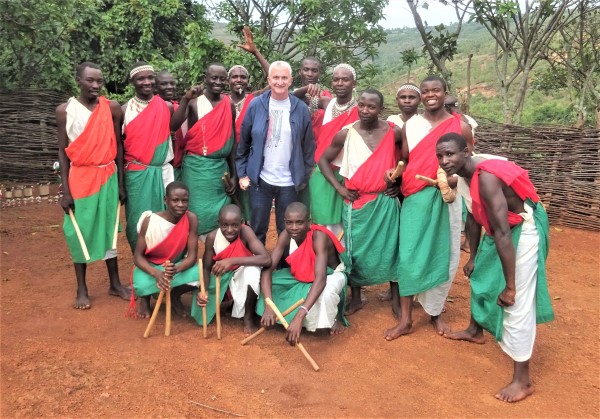
We understand that since the pandemic started, you have not been more than 3 miles away from your home, nowhere where you can’t go on foot. What has been the motivation for your decision and how do you deal with the lack of travel?
I realize there are those who will disagree with me, but having lost 5 friends to COVID, I can’t help but take the virus very seriously. I don’t want to be one of the asymptomatic people who unwittingly passes the virus on to someone whose immune system may not be able to resist it. And I’d prefer not to be one of those who is sickened by the virus and in need of hospital care — in a health system which is already overburdened by pandemic patients. I have seen the devastating toll this has taken on the families of these 5 people. They have died alone in the hospital — no family nor friends by their side when they passed. No chance to say “good-bye”, no last embrace, no chance to hear “I love you” as they take their last breaths. It is heart-wrenching. Perhaps it takes that personal experience to make one feel the way I do; or perhaps others react differently. But for me, I cannot bear the thought of being responsible for someone else’s demise. So I do what I can to avoid inadvertently spreading the virus. I venture out on masked walks in the neighborhood and to the store, but that is all. I realize I could still be exposed to the virus and I could still pass it on, but I am doing my best to limit those possibilities. And I will gladly forego travel if it means that I am helping to prevent further spread of this deadly virus and its mutations around the world. The thought that I might introduce a virus mutation to people anywhere in the world gives me pause.
There have been rewards for staying home. I have gotten to know my neighbors much better. I have been able to assist some elderly apartment dwellers by doing their grocery shopping and picking up their prescriptions. I have walked up and down every street within a 3 mile radius of my home, meeting people and their dogs whom I had never known. And I have been reminded of the fact that many people have not had the opportunity to travel as I have — those who are struggling just to pay their rent and care for their families. So I have been given this chance to reassess my goals and learn to be content to be at home and in good health. As others have said, it’s the chance to “bloom where I am planted”, to “make lemonade out of lemons” and “to live more simply so that others may simply live”.
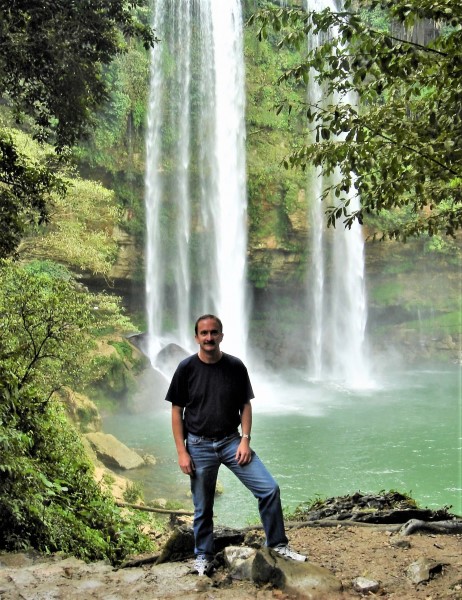
Once the pandemic is over, where would you most like to go? Do you feel travel will change permanently or will we go back to where we were?
When the pandemic hit I had several trips planned and paid for which I’d like to recommence: Svalbard is at the top of the list — I love the arctic in the summer with its 24 hour daylight; and the polar bears are a real attraction for me. A second place would be the UNESCO site of Petra which I’ve tried to get to twice only to have missed it due to being hospitalized in Amman in 1978 and then again in 2020 due to the pandemic. And a goal which still eludes me is to finish my overland journey between Cairo and Cape Town — there are a couple sections of that road trip which I have yet to finish. But if international travel is not possible, there are still lots of places in the U.S. which entice me. Some new national parks have been created in the last few years which beckon me and there is no end to the exploration one can do in Alaska. I expect this is not our last pandemic. New health screening protocols will likely be implemented, especially for international travel — but this is to be expected. Catastrophic events bring about change. Die-hard explorers will adjust to those changes to pursue their passion.
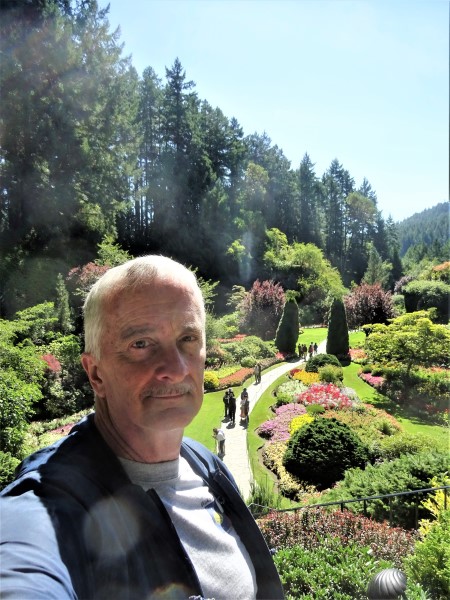
And finally our signature question – if you could invite 4 people from any era to dinner, who would your guests be and why?
I can tend to take things too seriously at times. But the truth is I like to laugh and see the humor in life. So I would invite four of the actresses whom I’ve most enjoyed watching on TV over the years, people who have made me “lighten up” and laugh: Jean Stapleton would top the list. And others right behind would be Patricia Routledge, Betty White and Carol Burnett. What fun that would be!
